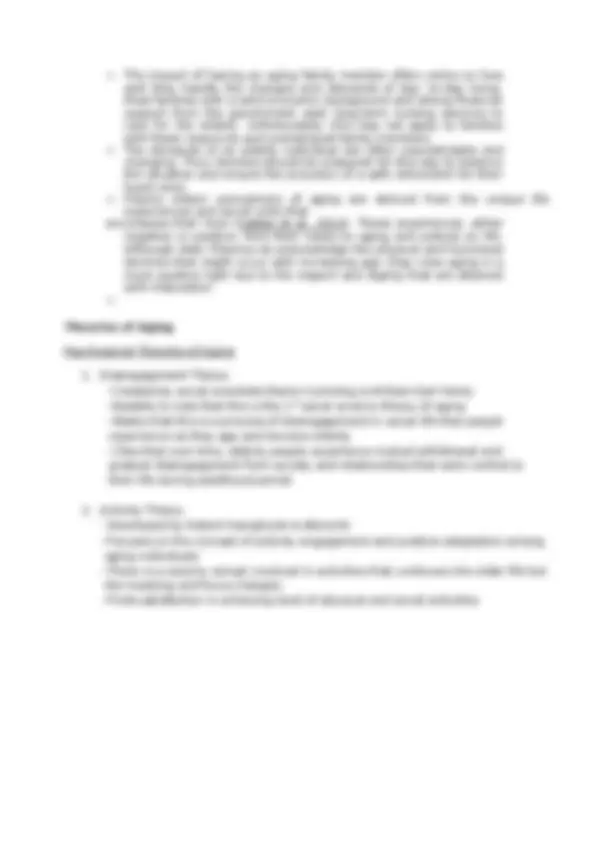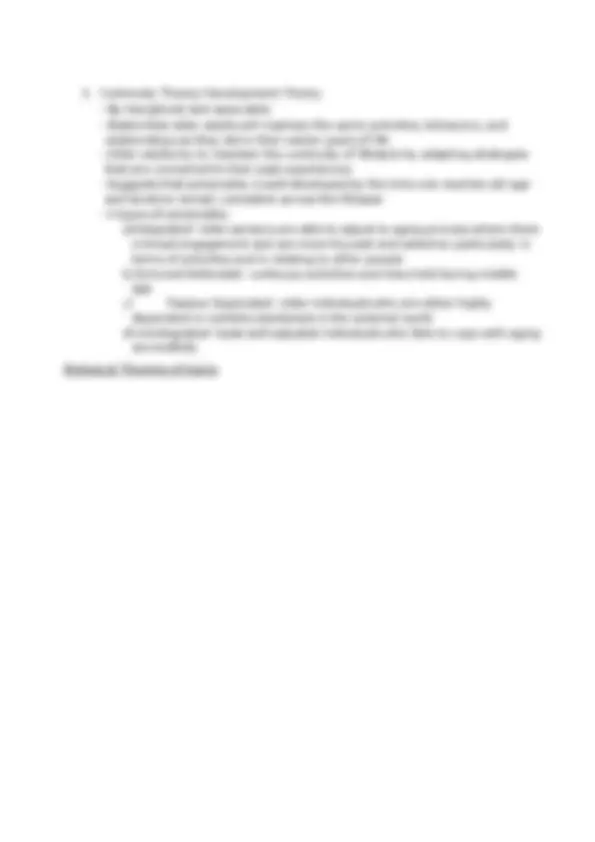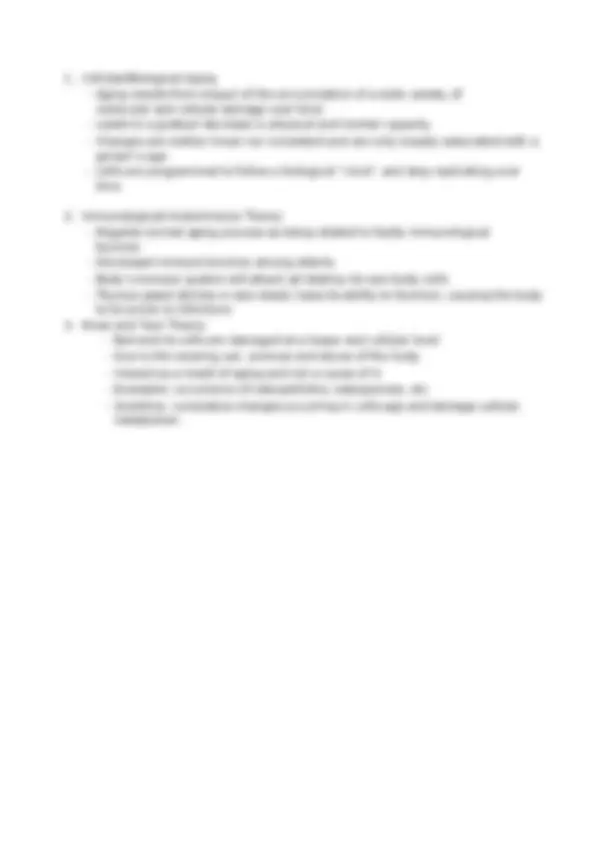Name: Fernando, Mac Leo Luis A.
BSN – 3A
Perspectives on Aging
Aging is a Developmental Process
- Sr Lety Kuan views life as a 3-pronged course
- 3 components of life course:
o Acquisition
o Struggle
o Legacy
- Components are the sum of experiences an individual has gathered throughout
existence (positive and negative)
- Continuous process that starts from conception up to old age
Acquisition
➢ Affects one’s capabilities to face challenges and struggles in life
➢ Good acquisition in early stage of life is crucial
➢ Usually handed over by parents, but as individual grows, he/she now performs the
acquisition alone or with others
➢ Environment and relationship with others shape how one acquires life
➢ Obstacles may present itself along the way to test acquisition
➢ positive acquisition
o lightens the burden, resulting in successful problem solving and bright
achievements
o cheerful disposition
➢ negative acquisition
o can lead to increased struggles, regrets, and dissatisfaction
o grumpy, antisocial demeanor
Legacy
➢ stage in life where a person has achieved self-actualization, radiating goodness
accumulated over time
➢ when one has been inspiration for others and has made a big contribution to society
Life Perspective/ Graceful Aging Theory
- Developed by Sr Lety Kuan
- Good education is crucial in stablishing a good legacy
o good education is the best we can give to children
- Economic status is not a hindrance to establish a good legacy
o What a child has grown up with (ex: presence/absence of affection, attention,
etc) is what he/she will bring up into adulthood
o Honesty and love are what matters in the upbringing of a person
- Regardless of religion, if one is spiritual, one cannot be cruel or selfish (sharing is a key
factor)
- In terms of dealing with people without good acquisition, it is the therapeutic role of a
nurse/caretaker to let them acquire what they missed early in life
o One must reflect the things they missed in the past to help them acquire it
o What the person lacks, the nurse must fill in
Demography of Aging & Implication for Health and Nursing Care














